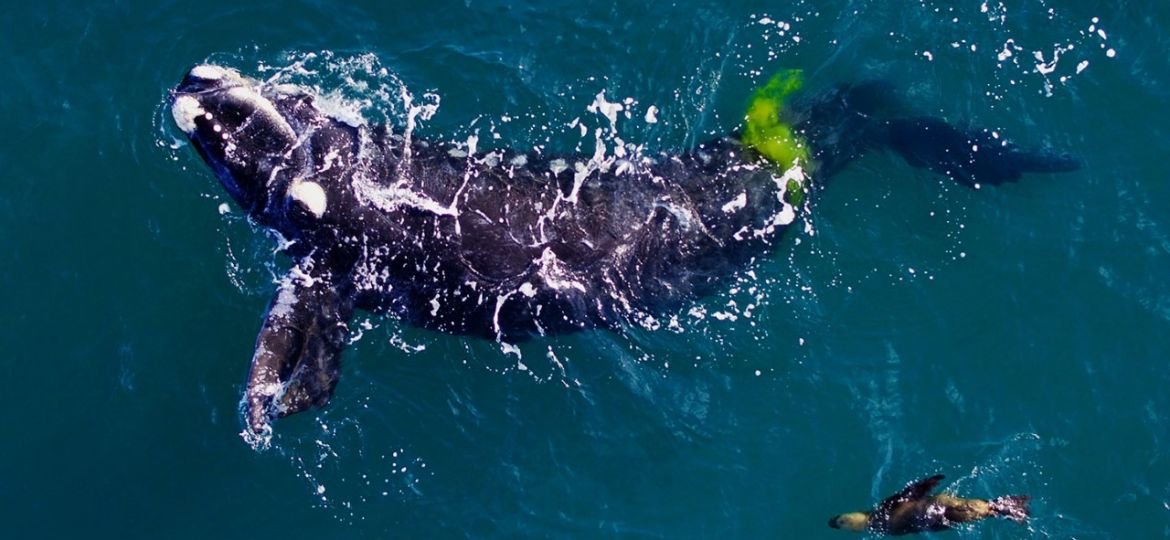
Researchers from the Whale Conservation Institute and Ocean Alliance led a study that describes for the first time the effect of climate change on the survival of female southern right whales, which are an endangered species.
This study led to a worrying conclusion: whale mortality increases after climatic events such as El Niño, which may delay or even prevent the recovery of whale populations.
Biologist Macarena Agrelo, ICB researcher and PhD student of the Graduate Program in Ecology at the Federal University of Santa Catarina in Brazil, headed this study. According to Macarena:
“The threats that whales face can affect their survival, and consequently their population recovery. Identifying these threats and their effects allows us to project the future of the population under different conservation and management scenarios.”
This scenario is worrisome especially because of the important role that whales play in the health of the ocean and the marine ecosystem. When migrating long distances from nutrient-rich feeding grounds to breeding grounds, whales act as fertilizers of the oceans through the nutrients they provide with their feces, a process known as “whale pump.” This process promotes biodiversity, especially the blooming of algae on which krill feed. A positive feedback loop between whales, plankton, and krill, known as the krill paradox, contributes on a large scale to maintaining healthy ocean food webs.
In addition, whales help in climate change mitigation by capturing tons of carbon in their huge bodies throughout their lives. This is why initiatives such as The Blue BOAT Initiative created by Meri Foundation and the Ministry of the Environment are important, as it ensures the care of whales through oceanographic buoys that warn boats about their presence to avoid collisions between boats and cetaceans. Moreover, the initiative takes care of the health of the oceans through sensors on the buoys that monitor and provide information about their temperature, conductivity, dissolved oxygen, and chlorophyll.
This study reveals the importance of considering the effect that the climate crisis has on whale populations. Furthermore, it reinforces the idea that, in view of a future scenario of more intense global warming, a delay in the recovery of whale populations may have a great impact on the other species that are part of the Southern Ocean food web.
In short, there is a chain that we must consider: we must take care of the planet to take care of the whales, so that they take care of us.

